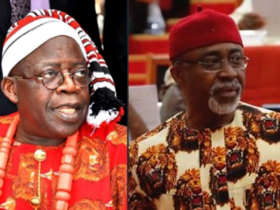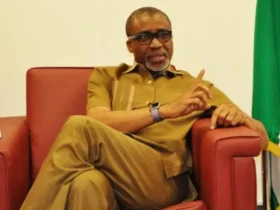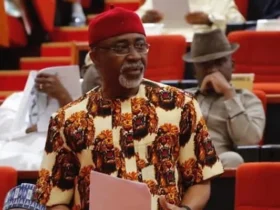
Bola Tinubu has said that poverty is not a source of shame but deems it unacceptable in Nigeria under his leadership.
Tinubu said this on Tuesday during the 55th International Conference, Exhibition, and Emerald Anniversary of the Chartered Institute of Personnel Management of Nigeria.
The conference’s theme was ‘Sustainable HR, Business, and National Development.’
Addressing the audience, Tinubu highlighted the pivotal role human resources play in shaping the nation’s destiny.
He shared a vision for transforming Nigeria into a nation of creators and builders, striving for prosperity for current and future generations.
Tinubu stated, “As I have said repeatedly, poverty is not a shameful thing, but it is an unacceptable thing. Therefore, my vision for the Nigerian workforce is one where every citizen who wishes to be is gainfully employed and able to take care of themselves and their family. Together, keying into this vision, we will banish poverty.”
READ ALSO: I Inherited Serious Liability From Buhari, Other Former Leaders – Tinubu
Represented by the Minister of State for Labour and Employment, Nkiru Onyejiocha, Tinubu expressed his administration’s commitment to steering Nigeria towards self-reliance and reducing dependency on others, especially in the face of global challenges.
According to reports, Tinubu outlined a vision for increased industrial activity, marked by the establishment of unique industrial hubs tailored to each region’s strengths.
He stressed that the commitment to ending poverty is intertwined with a focus on economic growth, job creation, and sustainable development.
Commenting on the role of HR practitioners, Tinubu emphasized their significance in molding and effectively managing people as catalysts for economic resurgence in a competitive and evolving world.
The President and Chairman of Council, CIPM, Olusegun Mojeed, added that HR, now more than ever, plays a crucial role in shaping progressive organizations and nations.
Mojeed emphasized that sustainable people practices are catalysts for cultural, national, and infrastructural development, with talent supply playing a major role in creating and shaping favorable conditions for organizations and nations to operate.








Leave a Reply